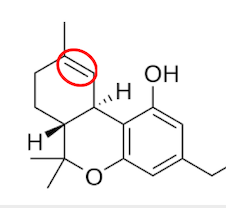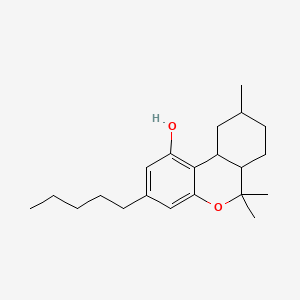HHC vs THC: What's the Difference?

Lukas Asked
What is HHC and how is it different than THC?
Summary

Answer
Hi Lukas and thank you for your question! Let's learn more about what HHC is and how it is different from THC below.
What is HHC?
HHC stands for "Hexahydrocannabinol", a naturally occurring cannabinoid found in the cannabis plant. Although HHC occurs naturally in cannabis, it is only found in low concentrations. HHC can also be synthesized from hemp-derived cannabinoids, such as CBD, through a series of chemical reactions.
HHC and THC are often discussed in the same breath, primarily because HHC shares many similarities in terms of effects with THC. However, the compound also has some distinct features distinguishing it from THC.
How Is HHC different than THC?
The main difference between HHC and THC lies in their chemical structures.


HHC and THC both have cyclohexane rings, but THC's ring includes a double bond (highlighted here in red). This small structural difference changes the pharmacological properties of the two cannabinoids. HHC binds weaker to CB1 receptors than THC does. As a result, HHC is less potent than THC. The psychoactive effects (such as euphoria) are more mild compared to THC at the same dose. Hence, HHC has become popular for consumers who wish to experience the effects of THC, but are looking for more of a toned down effect.
More about HHC
The following points further illuminate the distinctive nature of HHC:
- The pharmacologic effects of HHC haven't been investigated as extensively as THC. Therefore, more research is needed before one can be sure about HHC's safety and effects.
- HHC's legal status is debatable. HHC is not clearly regulated anywhere. It falls under a broad classification of "cannabinoids derived from cannabis", but it is also an analog of THC, so some consider HHC illegal under Federal law. Others consider HHC legal since it can be derived from Hemp.
- A unique chemical structure, lacking a double bond in its cyclohexane ring, and lower affinity at the CB1 receptor are hallmark features of HHC, which make it different from THC.
Concluding Remarks
HHC (hexahydrocannabinol) is a cannabinoid compound that naturally occurs, in low amounts, in the cannabis plant. Its chemical structure is very similar to THC but it exhibits some distinct qualities as well. While HHC produces effects similar to THC, its chemical structure and potency differ slightly.
This difference results in variations in its effects and characteristics. Further research is necessary to fully understand the pharmacological properties, safety, and potential therapeutic applications of HHC.
HHC has a questionable legal status and is considered by some experts to be illegal under federal law. Others consider it legal under the farm bill.



